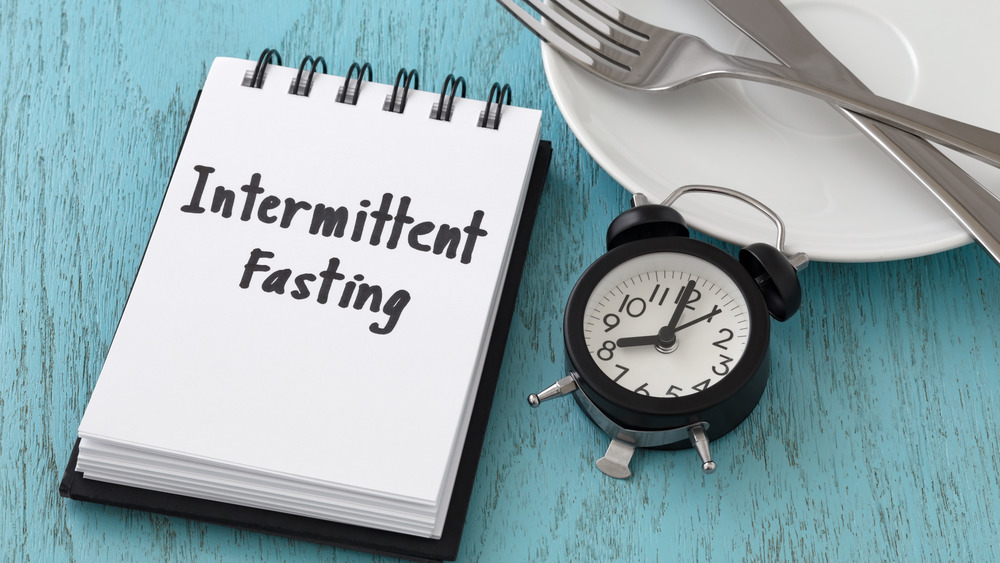The Surprising Effect Intermittent Fasting Has On Your Mind
When did intermittent fasting (IF) become the poster child for weight loss? With its praises sung by friends, fitness fanatics, and even celebrities (Insider notes Jennifer Anniston is a fan), the trendy diet has certainly made a name for itself. Harvard Health Publishing suggests the IF trend began in 2012 with the release of Dr. Michael Mosley's documentary Eat, Fast, Live Longer. The diet's popularity skyrocketed as more publications touting its health benefits and weight loss success emerged.
Unfortunately, this popular diet is not without flaws — specifically, those of a psychological nature. When fasting, the hormone cortisol is released which can cause feelings of irritation, stress, and anxiety (via SHAPE). An empty stomach can further sour your mood, causing the hangry feeling parodied in Snickers commercials. But being overly stressed is nothing to joke about, as it can lead to bigger health problems such as heart disease and diabetes (per Mayo Clinic).
How fasting can affect your mental health
Intermittent fasting can have a negative impact on your mind, your mood, and your mental state. Rachel Hartley, RD, says the lack of calorie consumption can cause dizziness and trouble focusing (via Business Insider). Some research suggests long periods of fasting may cause you to make poor decisions and even lead to unhealthy ways of eating. Hartley says when fasting is the cause of increased depression and changes in social behavior, eating disorders may arise. Yasi Ansari, registered dietician and spokesperson for the Academy of Nutrition and Dietetics, agrees, claiming that IF can cause "overeating during non-restricted days," as well as other symptoms of binge eating.
Fasting can also impact your sleep cycle, causing interrupted, delayed and reduced sleep. Some studies show that IF can decrease your REM sleep time, which is thought to improve mood and cognitive function. Your mood can also be affected if your fasting involves limiting social interactions that involve food. Staying isolated and missing events can cause loneliness, which is a trigger for depression (via India Times). Before jumping on the IF train, it is wise to consider the possible positive and negative effects, and more importantly, to discuss them with your doctor.


